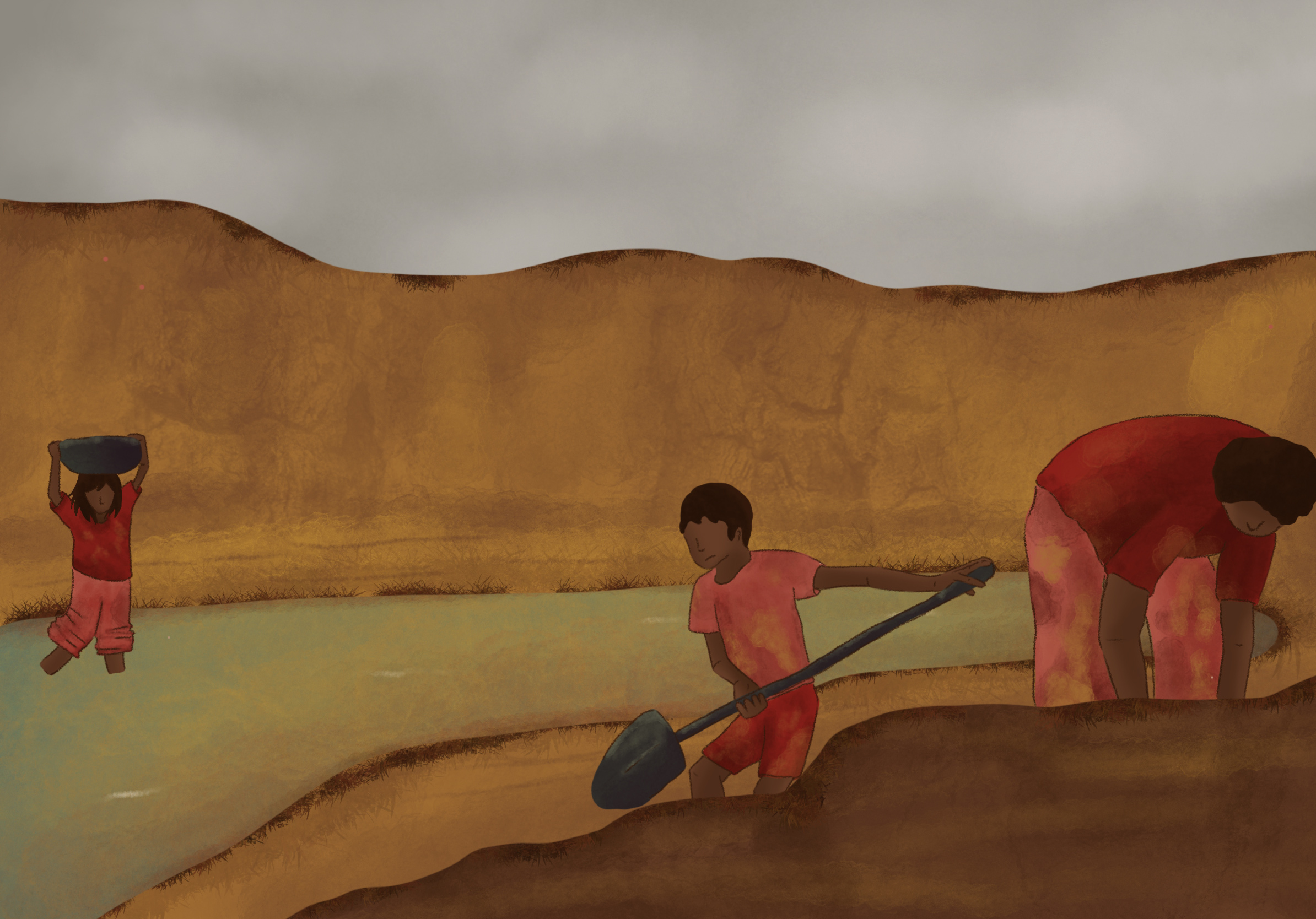
What does global warming spell for you… and your loved ones?
by Isabella Chua
Global warming affects us all, but our experience of it is highly personal.
We’re often asked about the future, even though we’re poor judges of it.
It’s not our fault—we’re wired this way. We think relatively, using reference points in our lives, instead of seeing things as they are.
It’s why we often just go along with our lives when we hear about changes to the climate. The mundaneness of the everyday feels unrelated to something as distant as ice caps melting in Antarctica.
But climate change’s harshest effects will soon strike right here in Southeast Asia. This story hopes to show you just how global warming is about to affect you and the people you care about.
Southeast Asia is facing a double whammy. Not only will the region be hit by global warming harder than many others, it is also set to disproportionately contribute to it, through its projected coal emissions and spike in greenhouse gas (GHG) emissions.
Between 1990 and 2010, Southeast Asia had the fastest GHG emissions growth worldwide. There is also little political will to switch to renewable alternatives from fossil fuels, and its affordability and accessibility make it hard for the fast-growing region to wean itself off it.
Nevermind that the region has many low-lying coastal and island nations that will face floods and sinkage when sea levels rise. Or that sea-level rise and superstorms threaten its food security—along with the lives and livelihoods of millions who contribute to the global food supply of rice and fish. Like any catastrophe, climate change will widen existing chasms in the region. This could mean undoing the progress made in past decades to lift masses out of extreme poverty and increasing political instability in the region.
Like the Titanic, Southeast Asia is headed towards the (ironic) iceberg. Difference is, we’ve had plenty of warning, but we’re stepping on the gas pedal anyway.
Your sense of urgency about climate change often corresponds to your generation. Gen Zs are more likely to consider climate change a global emergency compared to the Boomers, for example.
Why? The difference in opinion might boil down to this: As global warming intensifies, Gen Zs have a lot more to lose.
To put things into perspective, we plot how average temperatures will change in each generation’s lifetime. The charts begin with the earliest birth year of each generation: 1946, 1965, 1981, and 1997, for Boomers, Gen X, Millennials, and Gen Z, respectively.
Methodology note: Prediction temperature data for years 2021 to 2092 are based on climate model RCP 6.0, which assumes the medium-high scenario where greenhouse gas emission rates stay stable throughout the century and fall after 2100 through a range of technologies and strategies.

As you’ve probably guessed, Gen Zs are living in a different climate reality from other generations.
Gen Zs have spent most of their lives in temperatures from orange to red in intensity—and they will face rising temperatures over the rest of their lives. Boomers have consistently lived in cooler temperatures—seen in the shades of green and yellow—well into their late adulthoods. Gen Zs from Singapore and Malaysia have never even had a “green” year before.
The latest data tells us that 2080 is the beginning of the hottest predicted years for all countries—except Vietnam, which would have felt its hottest year in 1998. By then, Millennials and Gen Zs will be in their twilight years, experiencing at least a 1°C increase in global average temperature from when they were born.
If that doesn’t sound like much, consider this: historically, a 1°C increase has led to greater frequency of deadly heat waves, big chunks of Antarctic iceberg breaking off, and prolonged wildfire seasons.
Hotter temperatures still hurt Gen X and Boomers, even if they’ll be spared the worst of it. Being used to milder temperatures, they will find it harder to acclimatise to hotter temperatures in advanced age.
Despite their differences, all generations share this commonality: the hottest periods of our lives will also be when we’re at our most vulnerable. As each generation gets older, it faces a higher risk of heat stress and are frailer, less mobile, and more reliant on others for support. Certain medications more commonly taken as people age, such as drugs for blood pressure and cholesterol, also reduce the body’s ability to thermoregulate, making things worse.
This all sheds some light on why older generations may need more persuasion that climate change is a threat. Warnings of how the world will change drastically simply don’t square with their felt realities, given that they have spent most of their lives in relatively stable, cool temperatures.
But as you can see, global warming affects us all. It’s only a matter of time.
All that’s well and good, you might quip, but isn’t global warming a structural issue rather than the responsibility of individuals? What do you expect me to do?
As individuals, green efforts can feel like using a cup of water to extinguish a forest fire. Well-intentioned, but it hardly makes a dent.
After all, as of 2017, only 100 companies have produced 71 percent of global industrial greenhouse gas emissions since 1998. Southeast Asia’s emissions also seem negligible compared to oil-guzzling countries like the United States and China, which together accounted for 42.4 percent of global carbon dioxide emissions in 2019. If anything, Southeast Asia is a victim of these large countries’ irresponsible emissions.
Except we’re not totally in the clear, ourselves. Like it or not, living in global capitalist societies means we’ve participated in and added to practices that harm our planet, from choosing food delivery to travelling by plane. Global warming also doesn’t care about whether we’ve personally produced emissions or simply let our evil corporations do so. Eventually, everyone will be affected by it, though some will be hit much harder than others.
That’s why we should do what we can, within our means, to reduce our carbon footprints. Of course, there’s no one-size-fits-all way to mitigate climate change—what a wealthy executive can do won’t be the same as what a low-income family who can’t afford green choices can do. But anyone can do something and have it count, however small.
And the social sciences seem to bear this out! People constantly evaluate what their peers do, and adjust their actions accordingly. Making sustainable decisions signals to others that the climate matters, and normalises it over time. In Singapore, for example, the top reason for making climate-friendly decisions changed from lowering household bills in 2017 to “[preserving] a livable world for future generations” just two years later.
For anyone still skeptical about what one person can do, let Greta Thunberg be your inspiration. She started as a kid protesting outside the Swedish Parliament with a sign reading “School Strike for Climate.” Today, she has inspired other people from around the world to contribute to the fight against climate change. Here are some of these individuals from Southeast Asia who are doing great climate work.
The global in global warming should not distract us from the fact that climate change affects us in very personal, very intrusive ways. It will come for you and the people you love—who might not even exist yet—and doing our best to reduce our carbon impact means, at the very least, that we can tell ourselves and future generations that we did something to protect them when it counted.
Are we prepared to live with the consequences, if we don’t?








